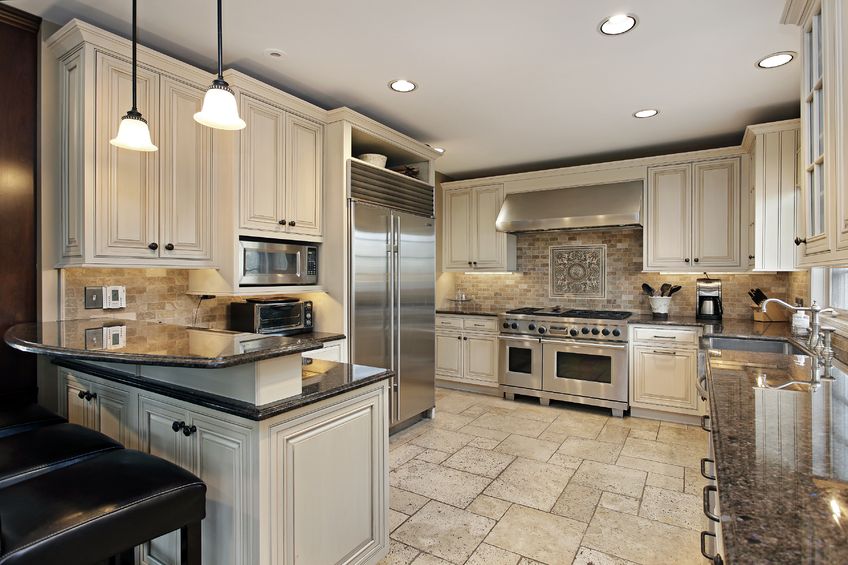
QUESTION: How can you be sure that your contractor will build a solid, sound structure that doesn’t cause health or safety problems?
ANSWER: Building Codes! Building homes and construction projects is a complicated process. To ensure that a new or remodeled building complies with municipal and state codes, ordinances and zoning regulations, a building inspector, who represents the owner’s interests, is deployed during each phase of construction.
Throughout the United States, commercial, home building and remodeling is regulated by building codes that set standards for construction. A building code establishes requirements to protect public health, safety and general welfare in relation to the construction and the occupancy of a home or building.
Regulations are executed at the state or local level, since different areas of the U.S. have unique construction methods for their geographic area, i.e. techniques used to build houses and buildings in a cold climate will be very different from a warm climate. In most cities, you will find a “Codes and Inspections Division”, who oversees actual construction and compliance with the city’s codes. Codes include specific requirements for building materials, structural design, light and ventilation, heating and cooling, sanitary facilities, fire protection and energy conservation.
Construction and building inspectors are certified by the International Code Council (ICC) and examine highways and streets, sewer and water systems, dams, bridges, as well as homes, commercial buildings and remodeling projects. They ensure that building codes are met through all phases of construction, checking the structural quality and general safety of buildings and ensuring that work is performed according to design specifications. Most importantly, safety requirements such as egress, fall protection, safe design criteria, emergency escape, fire protection and safe and healthy living environments are monitored to ensure building compliance.
Building inspectors supervise electrical; heating, ventilation, air-conditioning, mechanical, plumbing and other systems to ensure that the building meets codes. They also determine whether the structure is suited to the engineering and environmental demands of the building site and whether the plans for a building comply with building codes.
They conduct an initial inspection during the first phase of construction and subsequent inspections throughout the construction project, checking the structural quality and general safety of construction. When the project is complete, they conduct a final, comprehensive inspection and issue a “certificate of occupancy” (C/O). With the issuance of a certificate of occupancy, a homeowner or building owner can move in.
Construction and building inspectors generally keep daily logs, take photographs during inspection stages, review, and approve plans to meet building codes, local ordinances, and zoning regulations. They enact enforcement and may issue violation notices and stop-work until building is compliant.
QUESTION: A contractor told me that he could save me money by not pulling permits for my construction project. Is that OK?
ANSWER: Most cities and counties require a contractor to be licensed and registered with them in order to “pull building permits”. Licensed contractors are educated and have an understanding of building construction codes. A legitimate contractor will always pull permits. Some municipalities also require proof of the contactor’s liability insurance. An unlicensed, unregistered and uninsured contractor may suggest not obtaining building permits for this reason. Alternatively, he may bypass this initial step of construction, where plans may need to be created for submission to the building department and a plot plan for your property may be necessary to show improvements. The issuance of a building permit ensures that an engineer will review appropriate plans, making sure the plans and the resulting construction are complete, comply with accepted engineering principles, construction standards, and meet State and Federal requirements.
The building process is a major financial investment and is jeopardized by non-complying construction. It’s not only illegal to have construction work performed without required permits, but will create problems when you try to sell your property. Your fire and homeowners insurance coverage may be invalidated or the construction work may not be recognized without required building permits.
QUESTION: Is a building inspector the same as a home inspector?
ANSWER: No. The term “building inspector” is sometimes used confused with “home inspector”. A home inspector is a consultant and typically hired in conjunction with a house sale, informing potential homebuyers of an existing home’s deficiencies. This type of inspector scrutinizes newly built or previously owned homes, condominiums, townhomes, and other buildings and they report on a home’s structure and overall condition.
They are private contractors and aren’t connected with any governmental department or agency. Home Inspectors examine structural quality, home systems and features, including exterior walls, roofing, garages foundations, interior plumbing, electrical, and HVAC systems. They inform the potential homeowner of violations of building codes, but they do not have the power to enforce compliance with the codes.